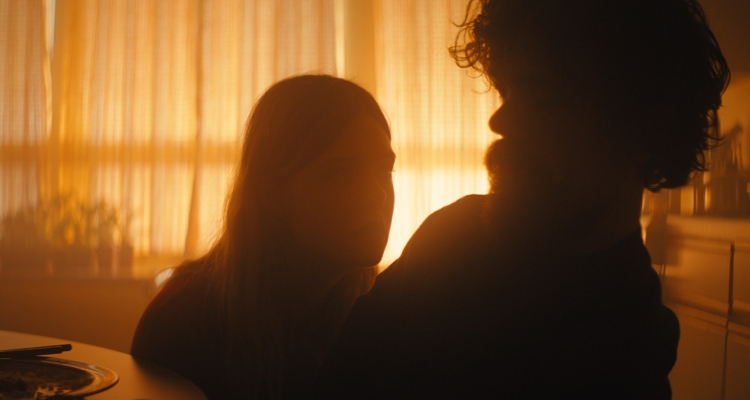PARK CITY – Trying to mine something new out in the post-apocalyptic genre isn’t easy. It’s been a stable of sci-fi films and television for almost 40 years. In that context, the fact that director Reed Morano and screenwriter Mike Makowsky are almost able to pull it off with the new drama “I Think We’re Alone Now” is actually somewhat remarkable.
READ MORE: Sundance 2018: The Most Anticipated Films Of The Festival
Debuting at the 2018 Sundance Film Festival on Saturday, “I Think We’re Alone Now” starts off by introducing the viewer to Del (Peter Dinklage). Wearing gloves and a bandana over his mouth he scours empty homes hunting for batteries, cleaning tabletops and picking up overdue library books. Each home is marked with a white “x” and he’s working methodically through his town hitting up one street after another. We soon discover the homes are empty and the surrounding town is hauntingly quiet because there are dead, decomposed bodies in all of them. Del wraps the corpses up and drags them to a makeshift cemetery where it appears he’s buried at least a hundred so far.
After his work Del returns to his home, the town library, where he catalogues books and watches old movies on laptops before their batteries run out. He doesn’t speak to himself. He only listens to music in his truck. His town is deserted and as far as he knows, he’s the only survivor of some strange event that instantly killed everyone but him.
One night he’s awoken by some loud explosions and is shocked to discover a stream of fireworks going off in the distance (an absolutely gorgeous shot framed by Morano). The next morning he ventures to the source of the light show and he discovers a car has crashed into a pole and a teenage girl, Grace (Elle Fanning), passed out in the drivers seat. When Grace comes to she finds herself in a clean home where Del is skeptical of her motives and how she’s survived for such a long period on her own (it’s never even hinted how long ago the “incident” occurred). Eventually, Grace’s persistence and charm slowly breaks down Del’s defenses. He lets her stay in the town and assist him in cleaning the homes. But even he knows something still isn’t right.
For all her forwardness Grace is still something of a mystery. She says that her family died and she was on her way to Niagara Falls before the car accident, but, again, how has she made it this far? Questions such as those are eventually answered in a third act twist that takes the film in a sharply different direction. We’ll keep the details spoiler free, but it’s a narrative choice that is at odds with the hypnotic and often times dialogue-free aesthetic Morano has framed up until that point. Frankly, it’s simply too jarring.
Morano, a long-time cinematographer who has been heralded for directing the pilot and numerous episodes of “The Handmaid’s Tale” has a distinct vision for a majority of “Alone Now.” She often has the camera directly behind Del, following him as he walks through empty streets or drags a corpse to its grave. She uses the setting sun in the library to dramatically silhouette her characters in a golden light. She uses layers of specific sound design and a brilliant score from Adam Taylor to create an atmosphere that funnels the oppressive loneliness that Del seemingly wants to feel. In many ways for Morano it feels like an artistic progression from her previous work on “Handmaid’s.”
As always, Dinklage is exquisite in a mostly silent performance that conveys the pain and survivor’s guilt Del has bottled up inside him following the incident. Fanning is the least “Elle Fanning” she’s been in sometime (a good thing) giving Grace a sly confidence that isn’t just the byproduct of her youth. There are other familiar faces that appear in the film who are more than fine in their particular roles.
“I Think We’re Alone Now” is mostly an ambitious portrait of a man who meets another survivor that slowly beguiles feelings of hope and affection from someone who never thought he’d see another living person again. Then, strangely, it becomes something else completely. And whether that was a smart choice or not will make for a curious debate for audiences already enraptured with the proceedings Morano has expertly procured beforehand. [B]
Click here for our complete coverage from the 2018 Sundance Film Festival


